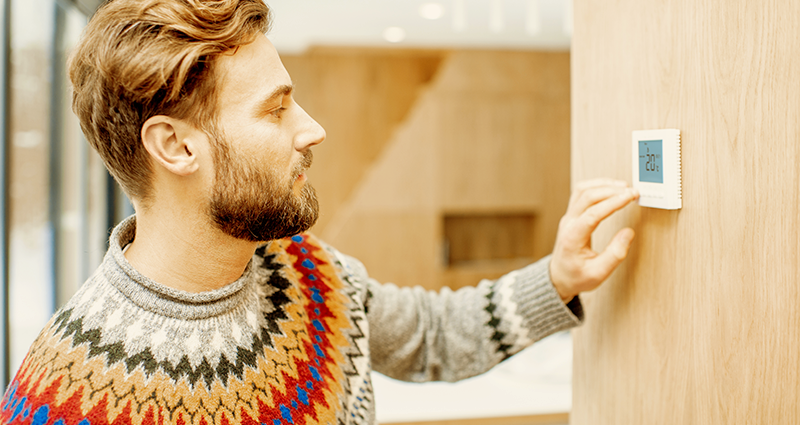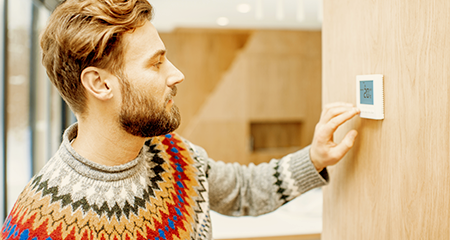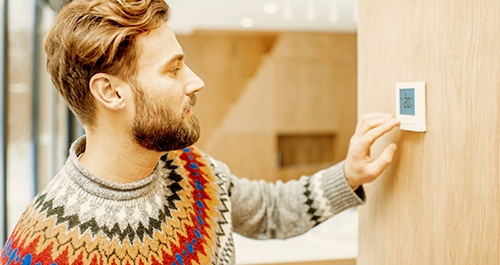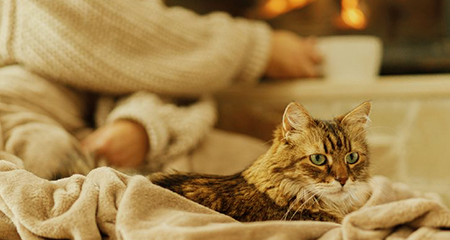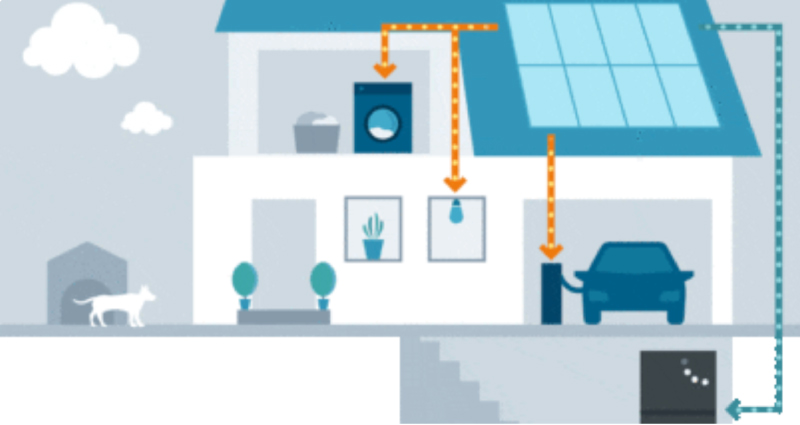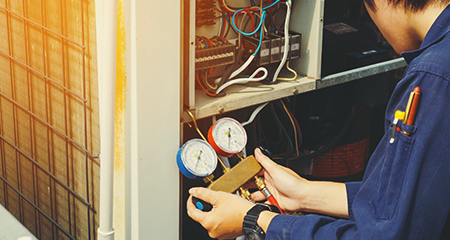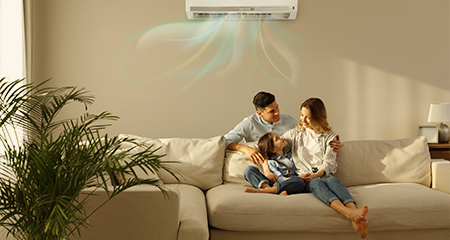Go to the source
The first place you may want to look when thinking about saving energy in the winter is the source of heat in your home – your furnace. Ensuring it's running properly and efficiently may help you conserve energy during these cold winter months. Some steps to think about include:
- Install a furnace filter alarm on your furnace. This will let you know when it's time to change your filter. These alarms will whistle when they sense the filters are dirty.
- Don't forget to check your furnace filter monthly during the winter months and replace it if it's dirty. Keeping your furnace in good running condition will reduce energy consumption.
- Not ready to replace your furnace? A tune-up may help your unit run more efficiently.
- Cranking up the heat to warm your house quickly doesn't work. The house warms up at the same rate, regardless of the temperature.
Heat only what's necessary
How to save energy in the winter is as much about avoiding energy waste as it is about using energy efficiently. Consider only heating the main areas of your home while it's cold:
- Avoid heating areas that are not insulated, such as a garage, crawlspace, attic or storage sheds.
- Avoid heating unused rooms by closing doors and vents.
Manage the airflow in your home
Another way to make sure that you're maximizing your energy efficiency in winter is by controlling and making the most of the internal airflow in your home.
- Make sure you change the direction of airflow on your ceiling fan. In the winter, let the fan pull cooler air toward the ceiling.
- Keep air vents clear of furniture and appliances so your furnace can work more efficiently.
- Did you know that heat recovery ventilators improve indoor air quality by expelling stale indoor air continuously and using its heat to pre-heat the incoming fresh air?
Take care of your fireplace and chimney
Deciding how to save energy throughout winter requires paying attention to all the heat producers in your home, like your fireplace and chimney. The following ideas may help conserve energy:
- Don't lose warm air up your chimney! The chimney acts like an open window. Be sure your damper is closed when the fireplace is not in use. Check the seal on the flue damper and ensure it's as snug as possible. Consider installing a heat-air exchange system that blows warm air into the room using tempered glass doors.
- When you do use the fireplace, reduce heat loss by opening the dampers in the bottom of the firebox (if provided) or open the nearest window slightly and close the doors leading into the room. Lower your thermostat setting to between 10-13°C.
- Consider installing a fireplace thermostat to help control your room temperature.
Check doors and windows
Doors and windows allow air to travel in and out, even after you've closed them. The following steps may help you save energy when it's cold:
- To check if a door provides good insulation, place your hand on it from the inside. If it feels cooler than the inside walls, it might be time to install a better-insulated door. Install fully insulated doors on all entrances to garages, cold storage rooms and un-insulated basements.
- Clear plastic sheeting on your windows can add more insulation and reduce icy drafts with minimal effort and minimal cost.
- Open the drapes or blinds on sunny days and bask in the 'free' heat. Keep those south-facing windows squeaky clean to let the light through. Remember to close the drapes or blinds when the sun sets.
Throw on layers
People have used rugs and textiles for centuries to warm themselves and their homes during winter. This is also an idea for how to save energy in the winter.
- Put on a sweater and lower your thermostat to save money on your heating bill.
- If you throw down a rug, you'll not only help insulate your floors, but you'll cut down on the noise too.
Switch to smarter lighting
Canadians rely heavily on electrical lighting during the long, dark winter nights. Help conserve energy by installing automatic timers, motion sensors, dimmers and solar cells at your house.
Add more humidity
Adding a humidifier to your heating system may allow you to turn your thermostat down and be comfortable at lower temperatures. PS: Aquariums and houseplants can add humidity too.













